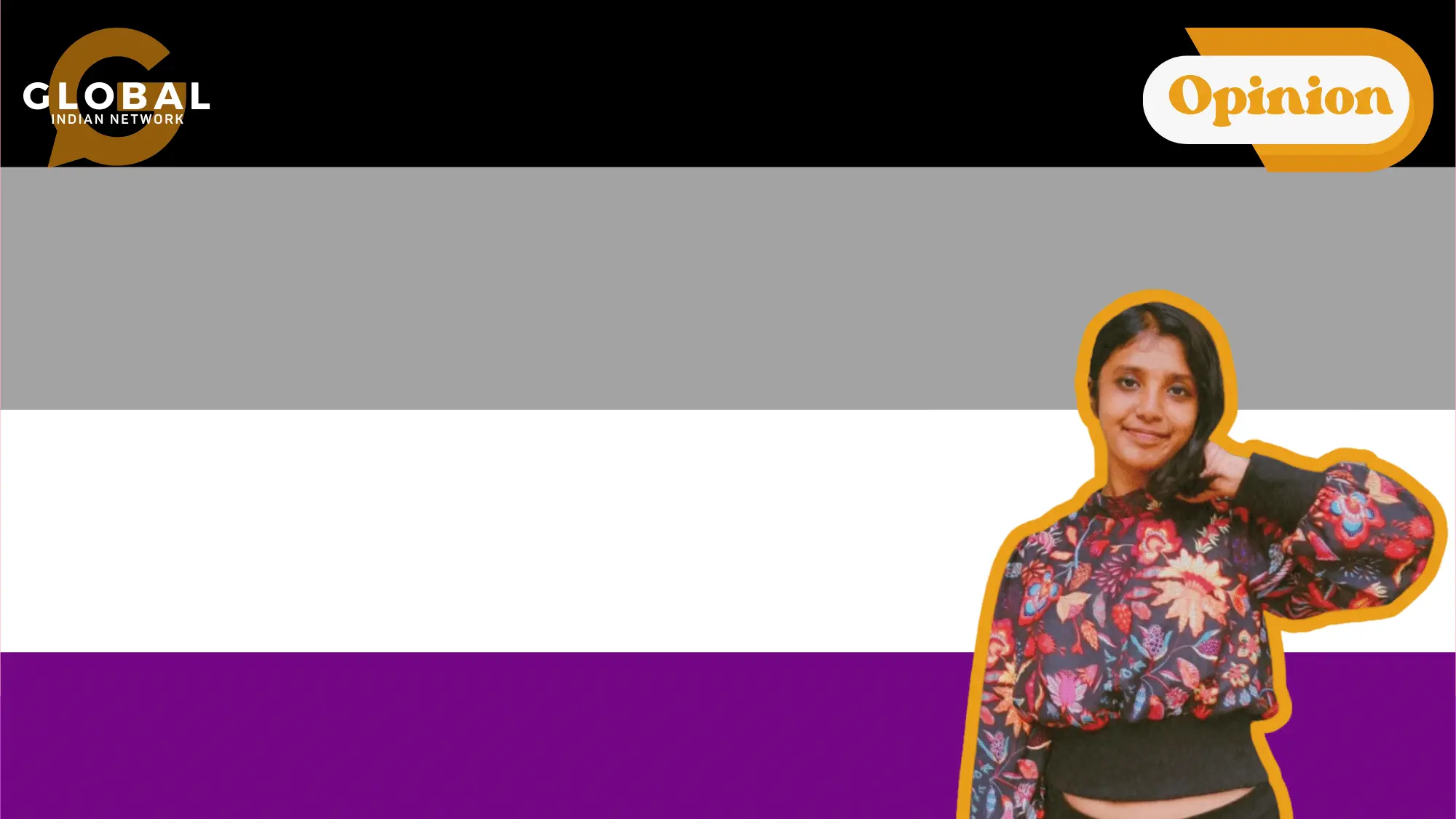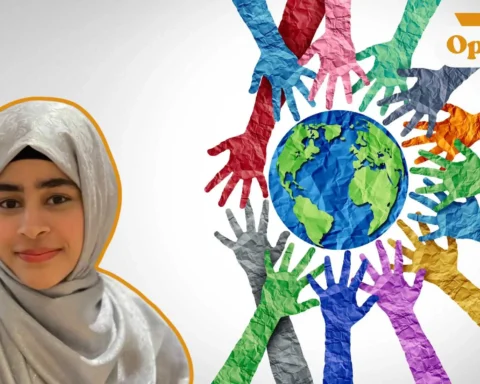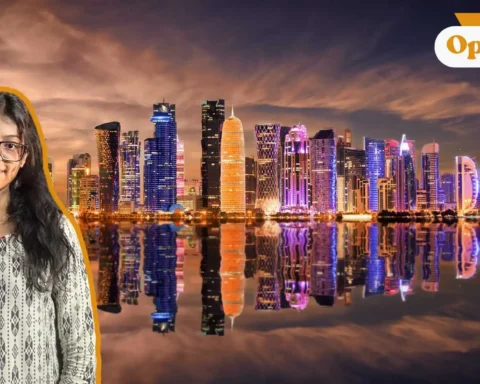My entire life, I had felt out of place. The stories of my friends meeting new people and having fun did not resonate with me. I felt confused and angry, coupled with a feeling of impending doom. Why am I not getting the butterflies they rant about that happen upon them quite easily? Sometimes, I feel as though my past relationships resulted in the mass murder of these butterflies. But instead, I stumbled upon the word “demisexuality”.
I have been called a prude and a coward because of not conforming to what the majority claims is the right way to have fun. I tried to fit into the societal norm of casual dating and quick flings, but I felt out of place and uncomfortable. I struggled with the idea of needing to connect on a deeper level before feeling any kind of attraction. It was as if I had been handed an instruction manual for a different model of human, and I just couldn't figure out how to operate in the same way. Demisexuality, a sexual orientation characterised by the need for a deep emotional connection before experiencing sexual attraction, is a concept that has not received as much attention as it deserves. It wasn't until I stumbled upon it that I began to understand my experiences and why they differed from those around me. It's a term that has allowed me to understand myself better and embrace my uniqueness. I no longer felt like an outcast when I accepted my special viewpoint on relationships and love due to this discovery.
The demisexual aspect of my sexuality rose to the surface after my last breakup with my best friend. I couldn’t get into a relationship as quickly as others. The comfort that I should have been feeling was nowhere to be found. I felt like a stray cat scouring the garbage cans for a trace of nutrition.
Evolution of Demisexuality
The concept of demisexuality is a relatively recent development in our understanding of human sexuality, and its evolution as a recognised sexual orientation has been closely tied to the broader evolution of societal attitudes towards non-binary and non-traditional forms of sexuality. Demisexuality is characterised by the need for emotional connection and intimacy before experiencing sexual attraction. It differs from other sexual orientations, such as heterosexuality or homosexuality, which are based on gender attraction. The term "demisexuality" gained prominence in the early 21st century, reflecting a growing awareness of the diverse and complex nature of human sexuality.
The evolution of demisexuality can be traced back to the broader LGBTQ+ movement, which has played a significant role in expanding society's understanding of human sexuality. As this movement gained momentum and visibility, it provided a platform for people to share their experiences and express their sexual identities, even if those identities did not conform to traditional norms. Demisexuality, like other non-mainstream sexual orientations, emerged from this growing dialogue around sexual diversity and identity.
The internet and social media have also played a crucial role in the evolution of demisexuality. Online communities and forums provided spaces for people to connect and share their experiences, leading to greater visibility and acceptance of demisexuality. Social media platforms allowed demisexual individuals to find support, allies, and a sense of belonging, further validating their identities and experiences.
Education and awareness efforts have contributed to the growing recognition of demisexuality. Schools and institutions have started incorporating discussions about diverse sexual orientations, including demisexuality, into their curricula. This has helped reduce the stigma associated with non-binary and non-traditional sexual orientations and fostered a more inclusive and accepting society.
Legal and policy changes have also had an impact on the evolution of demisexuality. As societies become more inclusive and accepting of LGBTQ+ individuals, it has become increasingly common for legal protections to be extended to people of all sexual orientations, including demisexuality. This recognition at the legal level has further validated the existence and rights of demisexual individuals.
Demisexuality in India
Demisexuality is a sexual orientation characterised by the need for emotional connection and intimacy before experiencing sexual attraction. While awareness and recognition of demisexuality have grown globally, including in India, it's essential to understand how this sexual orientation is perceived and experienced in the context of Indian society.
In India, traditional cultural norms and societal expectations have often placed a strong emphasis on arranged marriages and conservative values regarding relationships and sexuality. However, as the country has become more globalised and interconnected, attitudes toward sexuality and relationships are gradually evolving. This shift has created a more receptive environment for the discussion and acceptance of diverse sexual orientations, including demisexuality.
The global LGBTQ+ movement and the internet have primarily driven awareness and understanding of demisexuality in India. Online communities, social media, and dating apps have allowed individuals in India to access information about diverse sexual orientations and connect with others who share similar experiences. These platforms have played a crucial role in providing a sense of belonging and validation for demisexual individuals in India.
Education and advocacy efforts have also contributed to the acceptance of demisexuality in India. Organisations and individuals working to promote LGBTQ+ rights and awareness have been instrumental in challenging stereotypes and misconceptions related to sexual orientation. The inclusion of discussions on diverse sexual orientations in school curricula and public awareness campaigns has helped reduce stigma and discrimination.
India's legal landscape has witnessed significant changes in recent years concerning LGBTQ+ rights. In 2018, the Indian Supreme Court decriminalised homosexuality by striking down Section 377 of the Indian Penal Code, a colonial-era law that criminalised same-sex sexual activity. This landmark decision was a pivotal moment for LGBTQ+ rights in India and had a positive impact on the broader understanding and acceptance of diverse sexual orientations, including demisexuality.
Despite these positive developments, it's important to note that India is a diverse country with varying degrees of acceptance and understanding of LGBTQ+ issues. While progress has been made in urban areas and among younger generations, there are still challenges and pockets of resistance in more traditional and conservative parts of the country. Discrimination and stigma can persist, and many individuals may choose to keep their demisexuality private to avoid potential backlash from their communities or families.
What are your thoughts on Demisexuality? Let us know in the comments below.
If you also have any burning opinions or thoughts to share, mail us at larra@globalindiannetwork.com










